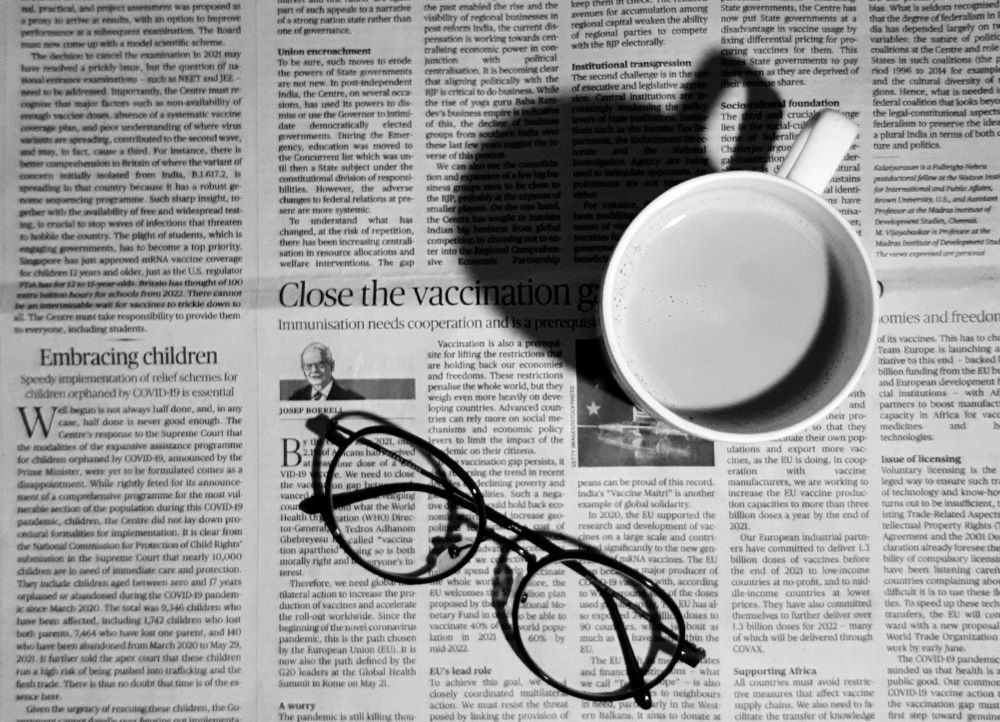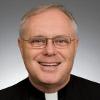
(Unsplash/Ashni)
I have not written for National Catholic Reporter in weeks. I have a good excuse. I had a stroke. It deprived me of some of my abilities as a writer. As Joni Mitchell sang in "Big Yellow Taxi," "Don't it always seem to go, that you don't know what you got, till it's gone."
Strokes can be fatal, but I'm blessed to be writing again. My neurologist told me the damage was minimal compared to other strokes of the same magnitude. I can still do the activities of daily living, such as dressing, bathing, eating and walking. But I have some serious problems to overcome. I cannot see well from my right eye, and my reading comprehension is poor. Also, I have trouble writing with a pen, though oddly I can still type. I guess it has something to do with "muscle memory."
I have a lot of trouble reading. It takes half an hour to puzzle my way through a page of type. Sometimes longer. Reading aloud is painfully slow. Often, I know the meaning of a word but cannot pronounce it. I cannot celebrate Mass, so I have not said Mass since this happened. Two weeks after the stroke, I went to a parish church near where I am staying. I could recite the parts I had memorized but couldn't read the missalette. It is the experience of being a child again.
I struggle to read the newspaper every morning. A single article can take an hour or more. I was moved to see in the paper that the president of Georgetown University, John DeGioia, has similar problems. He stepped down as president after 23 years following a stroke. He has my sympathy.
Beyond reading and writing, my most serious problem is my vision. My right eye has always been bad, but now it is very bad. My peripheral vision on the right is very poor. I cannot see people or things coming at me from the right until they are upon me. As a result, I cannot drive, unless I can arrange for all traffic to come at me from the left. This has made me very dependent on others. My friend Jorge has been wonderful about letting me stay at his house and driving me to appointments. I have become dependent on others to get to places.
I have often said, 'Once a man, twice a child.' Now I know it is true.
I have not been back to my house for more than a few hours since the stroke. I miss my independence, but I am grateful to Jorge for his hospitality and kindness in doing so many things for me like driving and laundry. His kindness is a real blessing. As the book of Sirach in the Hebrew Scriptures says, "A faithful friend is a sturdy shelter, He who finds one, finds a treasure. A faithful friend is a lifesaving remedy, such as he who fears God finds" (Sirach 6:14-16).
Friends and family have been very helpful as well. My sisters, Brigid and Maureen, have helped me with appointments. Friends and parishioners have visited and brought lunch. Others have made old-fashioned voice telephone calls to see how I'm doing and have offered their help. Their gestures make me feel loved and cared for.
Technology is a big help, too. I have been able to attend meetings and prayer groups on Zoom and read the newspaper by playing the audio version on my laptop. But I still want to read for myself, just as I did before the stroke.
Ordinary things, like reading instructions on a package or turning on a television program, are sometimes beyond me. Then again, contemporary televisions are all too damn complicated. Remember when you just had to turn it on and select the channel?
Friends often forget that I've had a stroke and cannot read. They send me links to endless articles from The New York Times or The Wall Street Journal. I want to shout, "I've had a stroke and have difficulty reading!" It does not seem to make any difference. They just send more articles. They mean well, but a telephone call would be better.
It is very disturbing to be 74 years old and not be able to read or drive. It is the experience of being a child again. It is teaching me humility and dependence. It may finally give me the grace to accept help from others and love. I have often said, "Once a man, twice a child." Now I know it is true.
This is not my first health crisis. I have had two heart operations and two mini-strokes, called TIAs (transitory ischemic attacks). I think those were God's angel "tapping me on the shoulder" reminding me that life does not go on forever. As the Scripture says, "For all can see that the wise die, that the foolish and the senseless also perish" (Psalm 49:10). Every day is a gift. And even things we have taken for granted, like reading and driving, can be taken away at any moment. And in fact, they were taken away from me, I hope temporarily.
No ability or material thing will mean much. In the end, as St. Paul says, "only three remain, faith, hope, love, and the greatest of these is love" (1 Corinthians 13:13). If it took a stroke to remind me of that, then it is a blessing.
Advertisement







